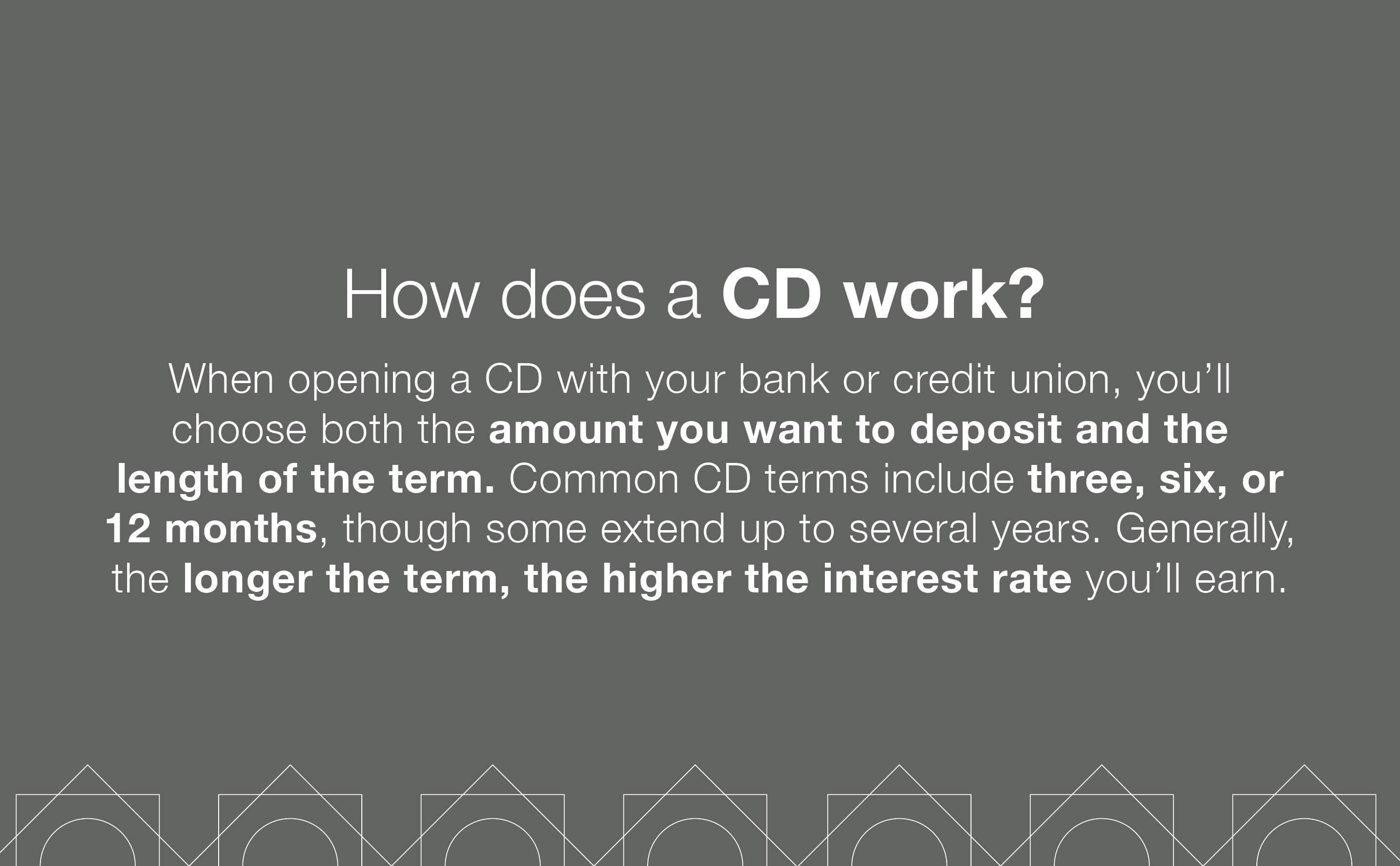What you need to know about certificates of deposit
In recent years, rising interest rates and inflation have prompted many consumers to seek safe and effective ways to grow their savings. One popular option is opening a Certificate of Deposit (CD) account with a local bank.
A CD is a savings account offered by banks or credit unions that provides a fixed interest rate in exchange for holding your money for a specified period. While CD terms vary, they typically offer a higher interest rate than standard savings or money market accounts. However, the trade-off is limited access to your funds until the term is complete.

How does a CD work?
When opening a CD with your bank or credit union, you’ll choose both the amount you want to deposit and the length of the term. Common CD terms include three, six, or 12 months, though some extend up to several years. Generally, the longer the term, the higher the interest rate you'll earn.
Most CDs require a minimum deposit to open, and once your funds are in the account, you won’t be able to access them until the term ends without paying a penalty. At the end of the term, also known as the maturity date, you can either withdraw your deposit and earned interest or renew the CD for another term.
Pros of a CD
CDs are considered a safe and reliable way to grow your savings. With a CD, you’re guaranteed a return based on the fixed interest rate you locked in at the time of deposit, providing predictable growth over a set period, something that stands in contrast to more volatile investments, like stocks.
Another key benefit is that CDs often offer higher interest rates than standard savings accounts. In some cases, banks may offer even better rates for longer-term CDs or larger initial deposits.
Additionally, CDs at institutions like Westfield Bank are FDIC-insured, meaning your deposit is protected up to $250,000 per depositor, per bank.
What to consider before opening a CD
While CDs offer many advantages, it's important to weigh a few factors before opening an account:
- Interest rate environment: Your CD’s earnings are directly tied to the interest rate at the time of account opening. Locking in a fixed rate can offer stability, but if rates rise soon after, you may feel like you missed out on higher returns. Conversely, if rates are expected to fall, securing a CD before that happens could be a wise choice.
- Inflation: Like interest rates, inflation can impact your CD’s real return. If inflation outpaces the interest rate on your CD, the purchasing power of your returns may decrease over time. If inflation is expected to drop, your returns will likely hold more value.
- The timeline: CDs restrict access to your funds until the term is up, so it’s essential to consider your financial needs. Evaluate your budget and spending habits to ensure you can afford to lock away the amount you plan to deposit for the full term without needing early access.
Is a CD right for me?
If you have a substantial amount of cash saved away ($2,500 or more) that you don’t need in the next few months or years, a CD can be an excellent way to earn a higher return while keeping your money safe. Westfield Bank offers a variety of FDIC-insured certificates of deposit accounts - compare our account terms and rates today to see if one is right for you.
If you’re unsure what the best sayings option is for you right now, don’t hesitate to get in touch with our team to explore all your options. Give us a call at 800.368.8930, or visit one of our branches.



